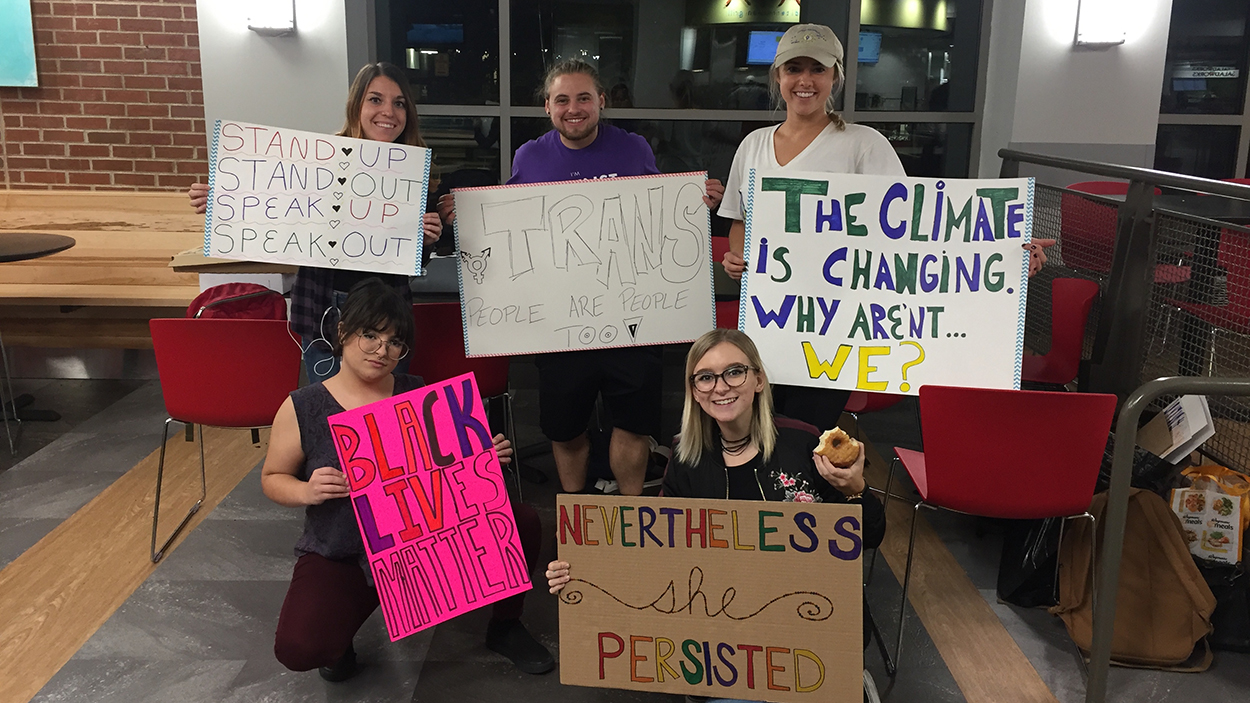Students from the Department of Communication and Social Influence have revitalized the college’s rhetoric club, renaming it the the TU Public Advocacy Club and creating a rare space where students can respectfully disagree and strategize about how to affect change.
The re-emergence of the club comes as a direct result of the restructuring of the department last year, which now emphasizes advocacy, civic engagement and urban organizing, said faculty advisor Professor Abbe Depretis. Students with a concentration in public advocacy resurrected the club and opened it to students of all majors.
“We don’t have a lot of requirements,” said club President Grace Kent. “So if people want to, they can go to a meeting and talk about what they’re passionate about.”
That means that the club includes business and biology majors who may not be as likely to have the chance to discuss social issues as part of their curriculum.
The club organizes one or two moderated discussions a month, with topics based on the interest of club members.
Depretis says she tries to stay out of discussions and allow students to maintain control. “They have an open forum,” Depretis said. “So far they’ve been very respectful.”
“We really try to hear everyone out,” said Kent. “And we do get into a lot of very deep, very intense conversations. But that’s why we’re in the club.”
“We had a discussion about animal cruelty,” said Kyra Bloom, the club’s vice president. “We discussed the pros and cons of everyone’s position, and regardless of the different opinions, it was still a productive discussion.”
Bloom pointed out that the topics are announced ahead of time, giving people time to prepare. People who don’t feel comfortable with certain topics can skip them. “Everyone in the group is a really loving person,” said Bloom. “And they’re willing to listen to other opinions.”
Although they discuss a range of issues from the environment to gun violence, the purpose of the club is not to advocate on behalf of certain issues as a group. Rather, the club helps students to further develop the tools that they’re already learning in their classes.
Depretis said, for communication and social influence students, that means sharing lessons about boiling concepts and ideologies down to images and phrases that are effective on protest signs.
Although the club doesn’t advocate as a group, members who share specific passions may meet to attend a march or work out an advocacy campaign. Last year, most club members participated as volunteers in the Dine Out for Life event and worked to support a community garden just off campus.
Seeing so much energy around public advocacy is exciting for Kent, who said she’s learning more about what it means to communicate as a leader.
“It can be hard to try to communicate your ideas to a large group of people,” she said. “But that’s a lot of what we’re learning in our classes, so that really helps.”
According to Bloom, leadership is strong on the club’s executive board. “Everybody is just so helpful,” she said. “If I need help with something, I can easily just ask someone on the board, and it’ll get done.”
It’s also a lot of work. In addition to an already demanding major, students in the club spent a lot of time organizing events. Despite their busy schedules and a daunting political landscape, however, Depritis doesn’t see students in the club getting burned out.
“They’re getting energized,” said Depretis. “I see students that are burnt out on politics, but not in the club. They really want a place to make change, and the club gives them a chance to really do something.”

